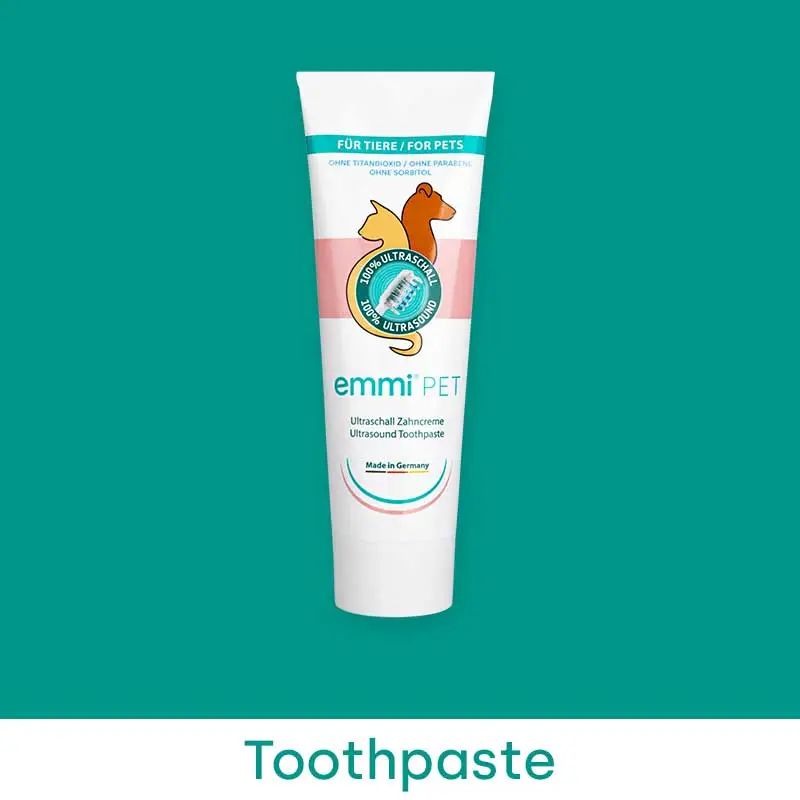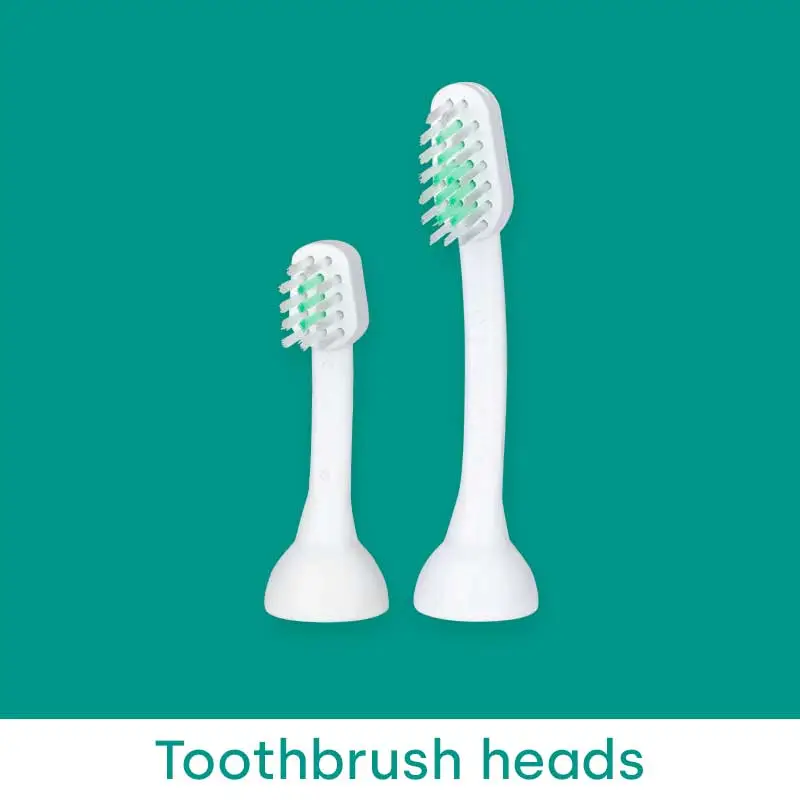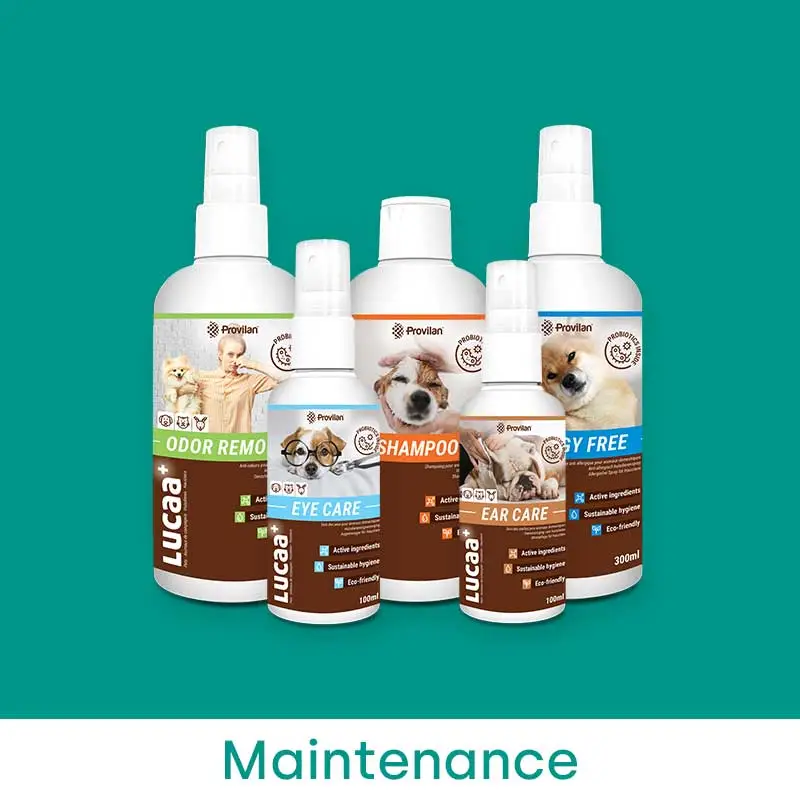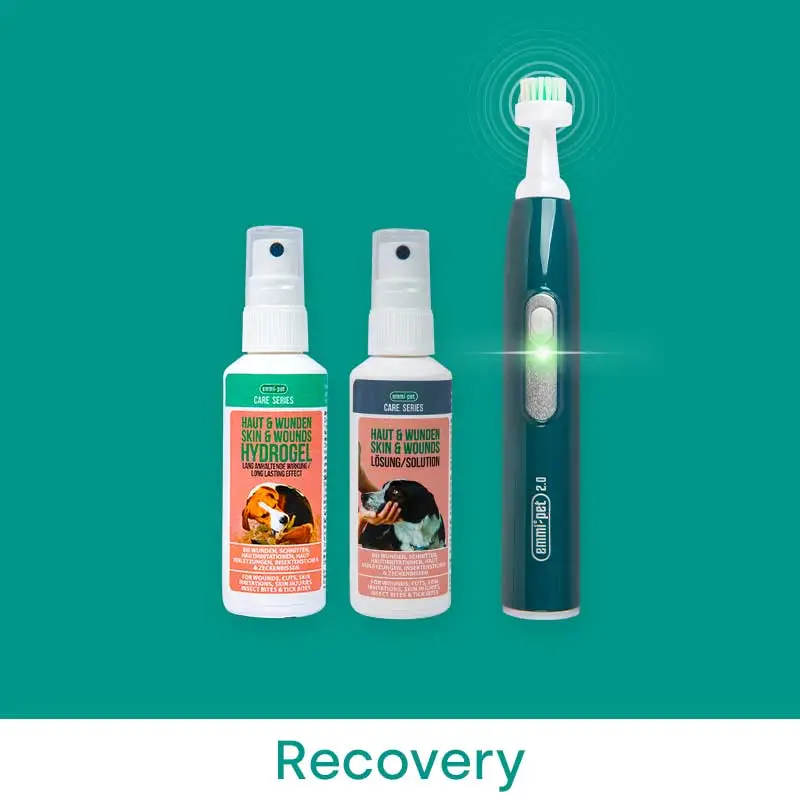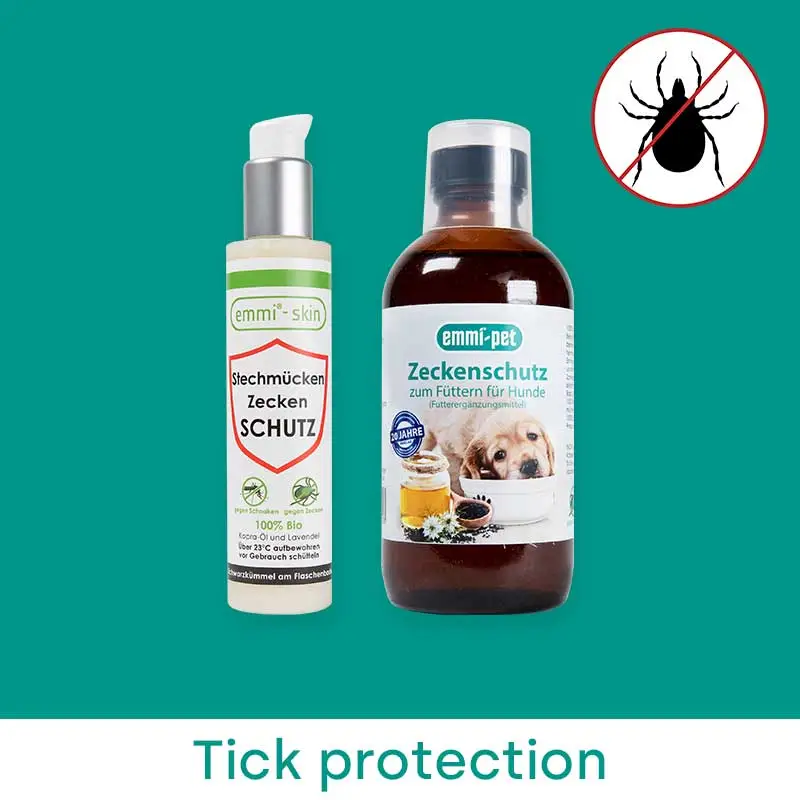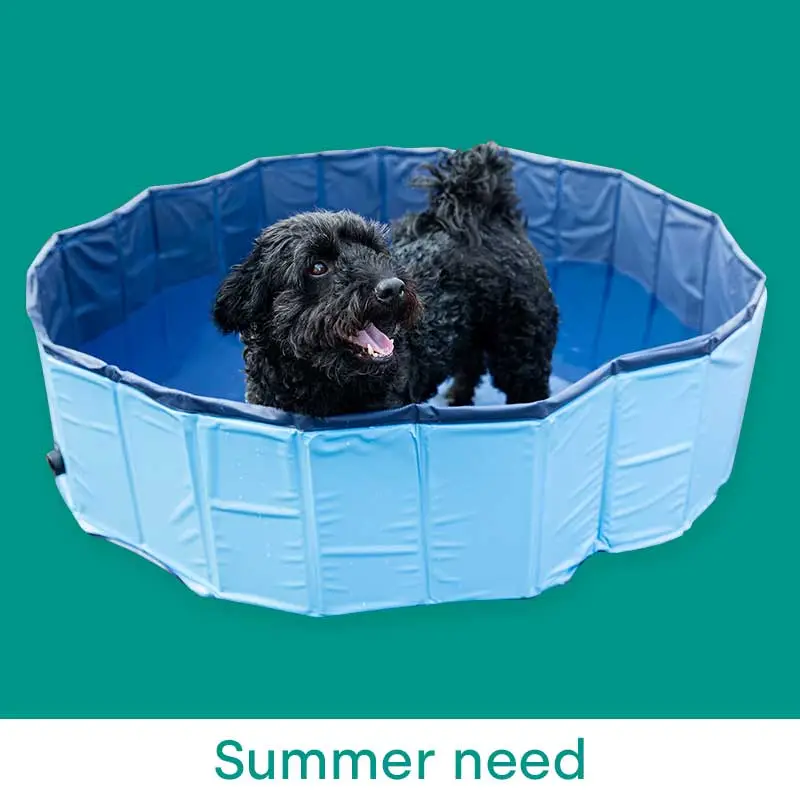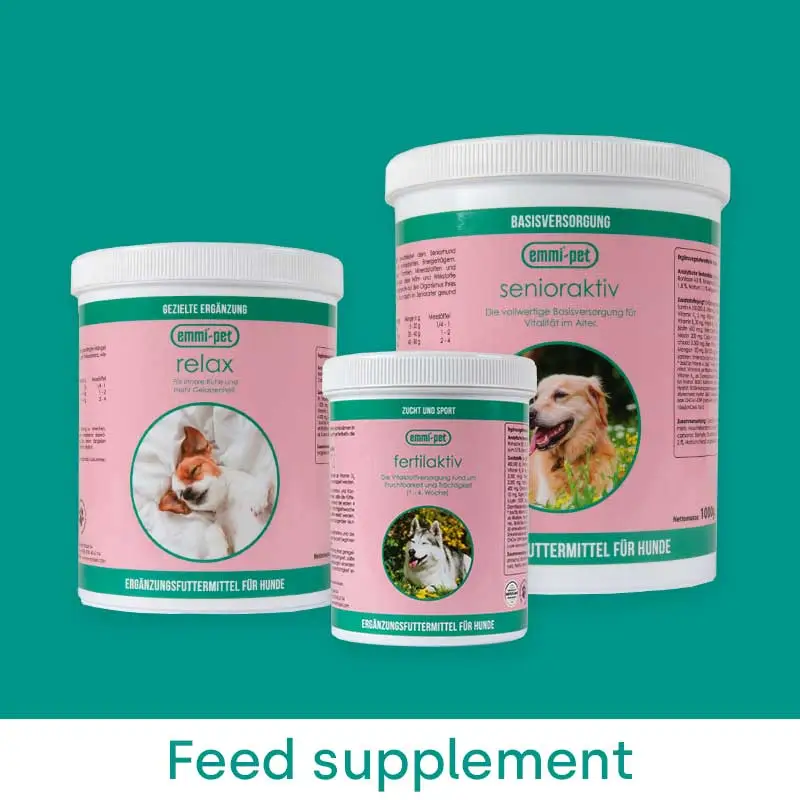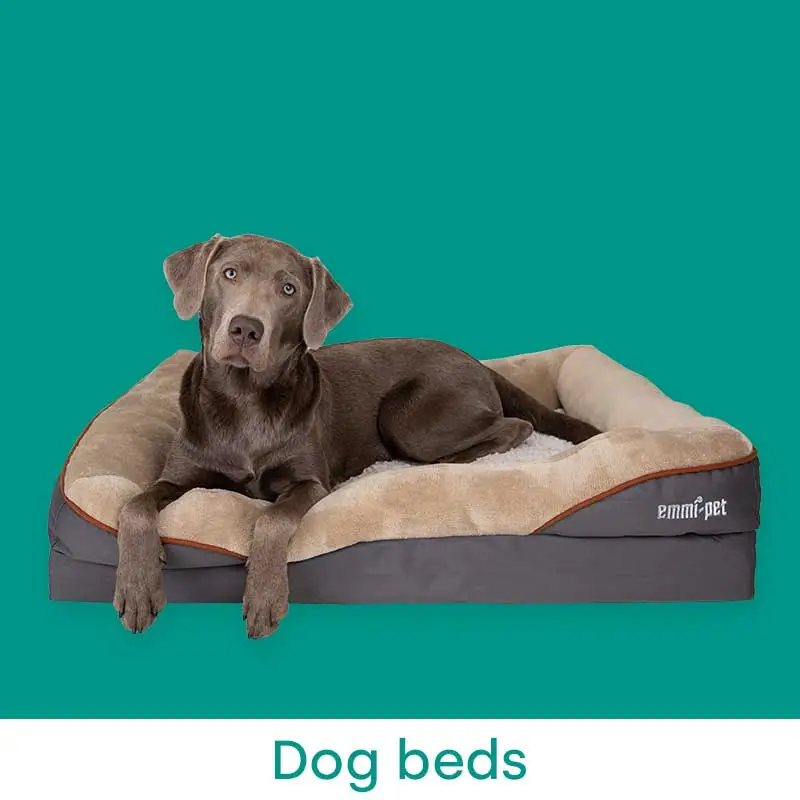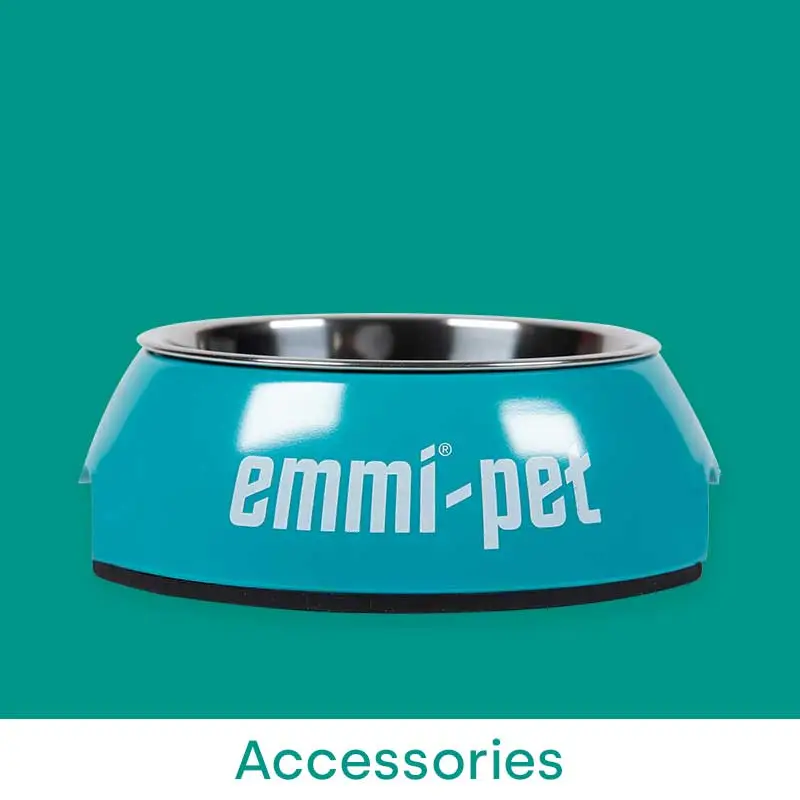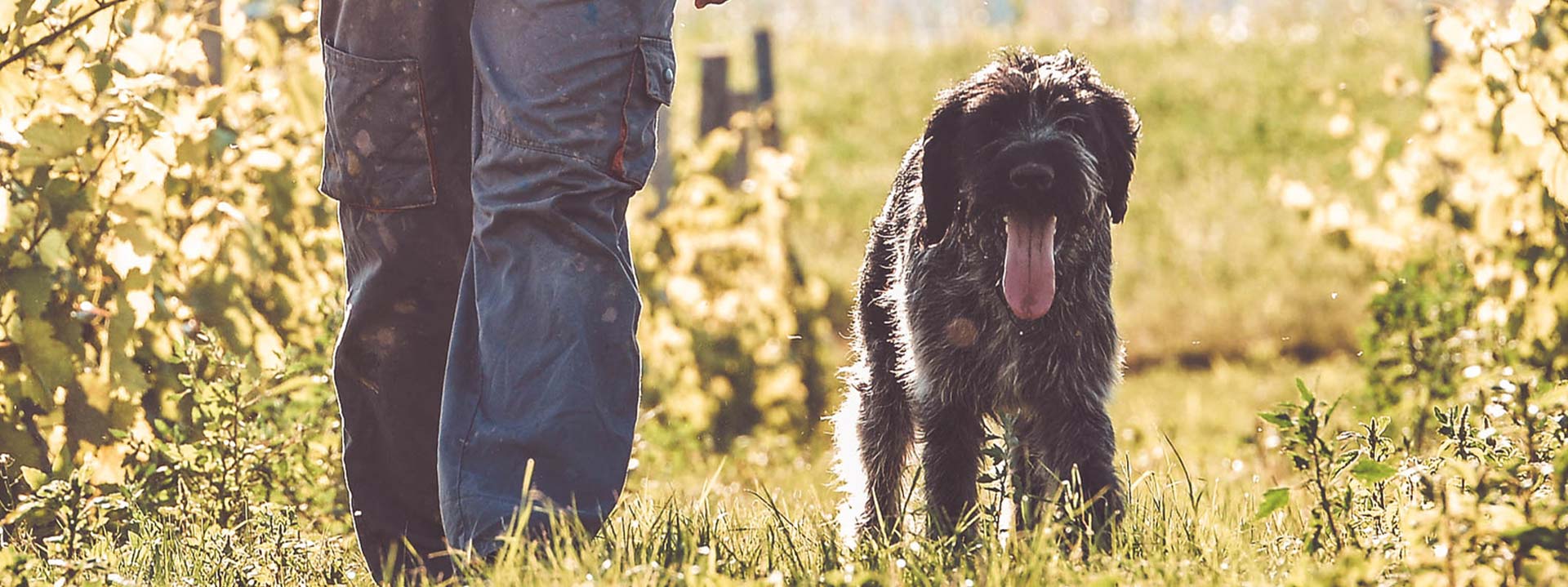
We are all aware that dogs age faster than humans. But what exactly does this mean for your faithful companion? As they get older, they face new challenges that require customised and careful care to maintain your dog's quality of life.
Older dogs need extra attention to ensure their well-being. Their diet should be carefully tailored to their changing energy needs to avoid obesity. This often means that fewer calories and easily digestible fats are crucial to support health.
Shorter but regular walks are essential to maintain mobility. It is important that your dog walks at its own pace without being overexerted. Similarly, light games and cognitive tasks promote mental fitness and provide daily motivation. These small but important daily rituals help to keep him mentally active and engaged.
Changes in behaviour or health problems should always be taken seriously. For this reason, regular visits to the vet are also essential in order to recognise age-related illnesses at an early stage and treat them accordingly. Let's take a look at all the individual points below.
Adjusting the diet
As our beloved dog enters their golden years, it is essential to adjust their diet. Older dogs have lower energy requirements, so it's crucial to carefully reduce calorie intake without sacrificing essential nutrients. High quality protein and easily digestible fats are now more important than ever to support health and vitality.
You may be wondering if senior food is a suitable option? In many cases, specially formulated food for older dogs can actually be a very good choice! However, it is advisable to consult with a vet before making any food changes to ensure that all of your dog's specific needs are taken into account.
What can you do if your beloved dog is struggling to enjoy their food? Sometimes small adjustments can make a big difference. Try warming the food slightly to intensify the smell and make it more appetising. This can be particularly helpful to stimulate the appetite. Also make sure that your dog drinks enough fluids, especially if he prefers dry food.
Another important tip: pay close attention to your dog's behaviour. Pay attention to how he reacts when you prepare the food. Does he still show the same enthusiasm as when he was younger?
Physical activity and mobility
Adapting the exercise routines of older dogs is crucial to support their mobility. As dogs get older, the challenges increase, whether due to age-related conditions such as arthritis or simply the fact that dogs age faster. But we can promote the fitness of our beloved dogs with short, regular walks. The important thing is to keep your dog moving at his own pace.
Here are some tips to increase your old dog's activity:
-
Shorter, more frequent walks: prevents overexertion.
-
Gentle muscle strengthening: Promotes mobility and can relieve pain.
-
Warm water: Swimming helps the joints and is fun.
-
Cosy resting places: A warm spot when the dog is sleeping is a must.
-
Gentle stretching exercises: Keep the joints supple.
-
Avoiding slippery floors: Stability protects against accidents.
-
Interactive games: Promote mental activity.
Observe changes in your dog and adapt activities accordingly.
Mental stimulation and emotional well-being
Mental challenge and emotional well-being are crucial to caring for older dogs. So how can you motivate your senior to stay mentally and physically active? Think about simple memory games or tricks that your dog learnt at a younger age. Re-introducing an old toy with a new twist can pique your dog's curiosity and bring them joy. It's often surprising to see how quickly time passes, and suddenly the signs of age show up like a grey moustache.
When your beloved dog shows signs of discomfort, it is often subtle changes that you can recognise in their muzzle and eyes. You can counteract these age-related changes with targeted mental stimulation. A mentally stimulated dog feels better, which contributes significantly to a happier and more contented old age.
Social interaction also plays an important role. Time spent together strengthens the bond and promotes a sense of well-being. By giving your old dog tasks that challenge him but don't overwhelm him, you keep him active and happy. This will significantly improve your four-legged friend's quality of life in their golden years.
Skin and coat care for senior dogs
Caring for your senior dog's skin and coat becomes increasingly important as they get older. Have you noticed that your beloved dog's coat becomes more brittle and less lively over time? This is a clear sign that special care measures are required. Regular brushing is essential as it removes dead hair and promotes blood circulation, which keeps your dog's coat shiny and healthy.
But what about the skin? Dry skin is a common problem in older dogs. Applying a rich skin care cream containing natural oils such as coconut or olive oil can intensively moisturise and improve skin elasticity. If you notice changes such as redness or dandruff, it is advisable to consult a vet. They can not only help you choose the right products, but also give you specific treatment recommendations.
Don't forget that this grooming routine is more than just a treat for your dog. It also creates precious bonding moments between the two of you. These shared grooming moments make your old dog feel loved and cared for. A seemingly small ritual that can have a big impact on your four-legged friend's well-being.
Dental care for senior dogs
Dental care for senior dogs is a critical issue that is often overlooked but is of immense importance. Older dogs are particularly prone to dental problems, which not only cause pain but can also lead to further health complications. Have you ever thought about using our emmi-pet ultrasonic toothbrush? It's designed to gently yet effectively clean your beloved dog's teeth.
Fortunately, there are simple steps you can take to support your senior dog's dental health. Regular brushing is essential. Use a toothpaste specially developed for dogs to help reduce plaque and improve oral hygiene.
What else can you do to optimise dental care? Chews that have been specially developed for dental care are an excellent addition to the daily routine. Not only do they help to remove plaque naturally, but they are also a tasty treat for your dog.
It's crucial to look out for signs of dental problems. If your dog shows discomfort or difficulty eating, this could indicate serious dental problems that need immediate attention. A proactive approach to dental care can help ensure that your four-legged friend enjoys their golden years in the best of health.
The importance of regular veterinary visits for senior dogs
The importance of regular visits to the vet cannot be emphasised enough. This is especially important when caring for an old dog. So how often should you take your old dog to the vet? Regular health check-ups help to recognise and treat possible illnesses at an early stage. Are you ready to prepare your beloved dog for more frequent check-ups?
How about getting your dog used to visits to the vet with small rewards or cuddles? This will make the visit less stressful. Does your dog perhaps already have signs of joint or dental problems?
Rely on the vet's expertise to provide your old dog with the best possible care. This will keep your four-legged companion fit and healthy for a long time to come. We know that you want to do everything you can to prevent your beloved dog from suffering.
Optimising the living space for senior dogs
Adapting the living space for your senior dog requires careful consideration in order to make their everyday life as comfortable as possible. Have you ever thought about installing mobile ramps? These practical aids allow your dog to climb onto the sofa or bed effortlessly without straining his joints.
Smooth floors can be a real challenge for older dogs. Rugs or mats not only provide better grip, but also help to minimise the risk of falls. This is particularly important to ensure your dog's mobility and safety.
A warm, draught-free sleeping area is essential for the comfort of your old companion. He will appreciate the cosiness of his own corner, especially as older dogs can be more sensitive to the cold. A heated dog bed can provide additional warmth and cosiness in colder months.
The design of the feeding area should also be reconsidered. It should be set up so that it is easily accessible for your dog without him having to strain unnecessarily. A raised food bowl can help to relieve pressure on the neck and make eating more comfortable.
By making these simple but effective adjustments, you can ensure that your old dog enjoys a comfortable and safe home.
Appreciation and care in your dog's golden years
In the later years of your faithful companion's life, caring for them becomes a real labour of love. The question arises as to how we can best support our old friends. Although physical exercise is still important, it should be adapted to the needs of an older dog. Shorter, regular walks are ideal to maintain mobility without overtaxing.
Nutrition plays an equally critical role. As older dogs tend to require less energy, it is advisable to consider special senior food. Don't hesitate to speak to a vet to find the optimum nutritional balance for your dog to support their health and vitality.
Mental stimulation should not be underestimated. Memory games are a wonderful way to keep your dog active and promote his mental fitness. Regular visits to the vet are also essential in order to recognise health problems early on and treat them accordingly.
Dental care is a particularly important aspect. It is more important than ever in the golden years to effectively prevent dental disease. By taking all of these carefully tailored measures, you can ensure that your four-legged friend spends their golden years in dignity, health and joy. These are not just routines; they are an expression of our love and commitment to the well-being of our older dogs.

